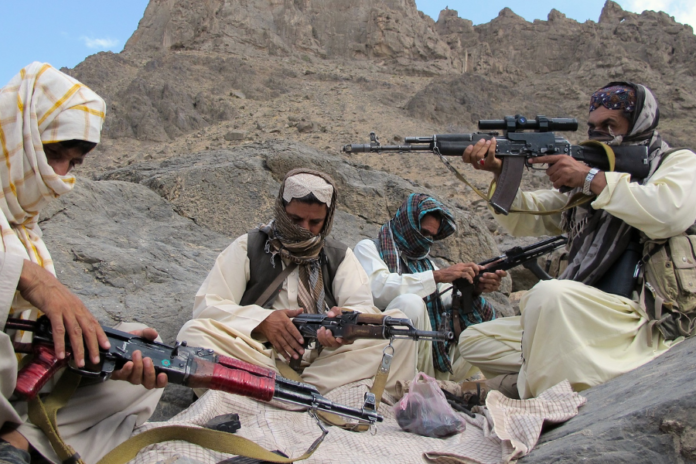Since more than two weeks ago, the Counter Terrorism Department (CTD) has been conducting fictitious contacts with dozens of young men in Turbat, Balochistan, which has resulted in widespread demonstrations. In the most recent round of murders, on November 23, Balach Baloch was slain in Turbat by CTD during a fictitious encounter. Balach Baloch’s family went to the Turbat Police Station to file a report for his kidnapping, however no report was filed and the police did not reply.
Jadin Baloch, Balach’s attorney, claims that this young man was kidnapped on October 29, 2023. When his family went to the Turbat police station, the officers did not want to work with them and did not file a missing person’s report. After 22 days, the authorities filed a false police report (FIR) claiming that he had been detained with 5 kg of explosives.
Police presented him to the local Anti-Terrorist Court (ATC) on November 21 and asked for a 10-day physical remand. In the meantime, Balach’s attorney, Jadin Baloch, filed the bail application for him since, based on the information presented by his family, he was abducted on October 29 and the FIR was unfounded, meaning he was entitled to be freed on bond. However, CTD killed him in a fictitious confrontation before the bail request could be considered. Human rights organisations, civil society, and the relatives of the Balach Baloch began a statewide campaign against the CTD’s increasing practice of fabricating encounters in Turbat. Balach’s family members restated in front of the press that Balach was taken from his home on the night of October 29.
Baloch activists claim that CTD is a state-owned murder squad that was founded mainly to engage in “kill & dump” operations in Balochistan, which is under Pakistani occupation. On November 23, the CTD made a bogus report that it had murdered four youngsters, including Balach, in an armed encounter. As demonstrations over these fictitious encounters in Turbat erupted, CTD conducted another fictitious encounter on November 27 that resulted in the death of another young man, Shohaib Baloch.
Thousands of people in Balochistan are staging sit-in protests in response to these fake encounters, calling for the CTD to be charged with murder and a quick end to these encounters. On November 25, Turbat was completely shut down, and the Baloch people boycotted the court sessions due to the lack of openness. The protest sit-in in front of the Turbat Police station is still going on, according to the most recent reports.
A comprehensive press statement containing six demands has been released by protestors and the families of Balach Baloch and Shohaib Baloch. These demands include the following: the murderers of Shaheed Balach and Shaheed Shoaib should be held accountable; disarmament of CTD throughout Balochistan; disarmament of Pakistani establishment death squads throughout Balochistan; immediate prosecution of all Baloch hostages (Missing Persons), particularly those whose families are currently staging protests; and an end to the forced disappearances conducted by the Pakistani establishment Given how many individuals have died in “fake encounters,” the government ought to acknowledge these extrajudicial killings and guarantee that they won’t happen again.
However, the Pakistani elite has not yet reacted to these requests, and it seems likely that this conflict will spark another round of widespread protests against Pakistan’s oppressive policies. While this is going on, Pakistani authorities have completely blacked out coverage of the events in Turbat, Baloch civil society members and relatives of the victims have called for international involvement to put an end to the widespread violations of their human rights.
In November of this year, Sarfaraz Bugti, the home minister of Balochistan and the interior minister in the caretaker government in Pakistan, declared unequivocally that the only way to end the security situation in Balochistan is by genocide. The de facto leader of Balochistan’s security forces is Bugti. He said to tribal leaders in Pakistan House in Dera Bugti, “Baloch armed groups have compromised the security conditions and challenged the writ of the state.” The only way to bring about a sustainable peace in the area for a flourishing Pakistan is to carry out a full-scale genocide against the dissidents. The news agency INP publicised Bugti’s comments, which was then picked up by other mainstream Pakistani daily newspapers. During this discussion, Bugti had additionally stated that Pakistan authorities have already succeeded in “clearing” many areas in Balochistan.
“The sit-in protest in Turbat against the fake police encounter leading to the death of young Balaach has persisted for several days. Demonstrations supporting this cause are occurring in various cities of Balochistan and Pakistan. The movement denounces fake police encounters, highlighting the plight of families affected by atrocities along the Goldsmid Line and hundreds of enforced disappearances at the hands of Paksitani forces,” the Balochistan Post reported.
“While leaders of the Pakistan People’s Party and Muslim League-N are in Quetta preparing for elections and pledging to address Balochistan’s issues, the protests in Turbat and Islamabad demand more than mere lip service. The state’s strategies to quell the Baloch insurgency, marked by collective punishment, enforced disappearances and alleged fake police encounters, have proven ineffective. Resolving the Baloch problem is deemed essential to quelling the movements and insurgency in Balochistan,” it added.
“Voice for Baloch Missing Persons reports that over two hundred forcibly disappeared individuals have allegedly been killed in fake encounters by the Anti-Terrorism Department of the Police across Balochistan in the past two years. Relatives of the victims continue their protests, with thousands participating in the Turbat protest against the alleged extrajudicial killing of Balach. The people of Balochistan, worn down by state oppression, may escalate their protest into a larger movement if the reported extrajudicial killings persist. Failing to halt such incidents could exacerbate the state’s problems in Balochistan.”



